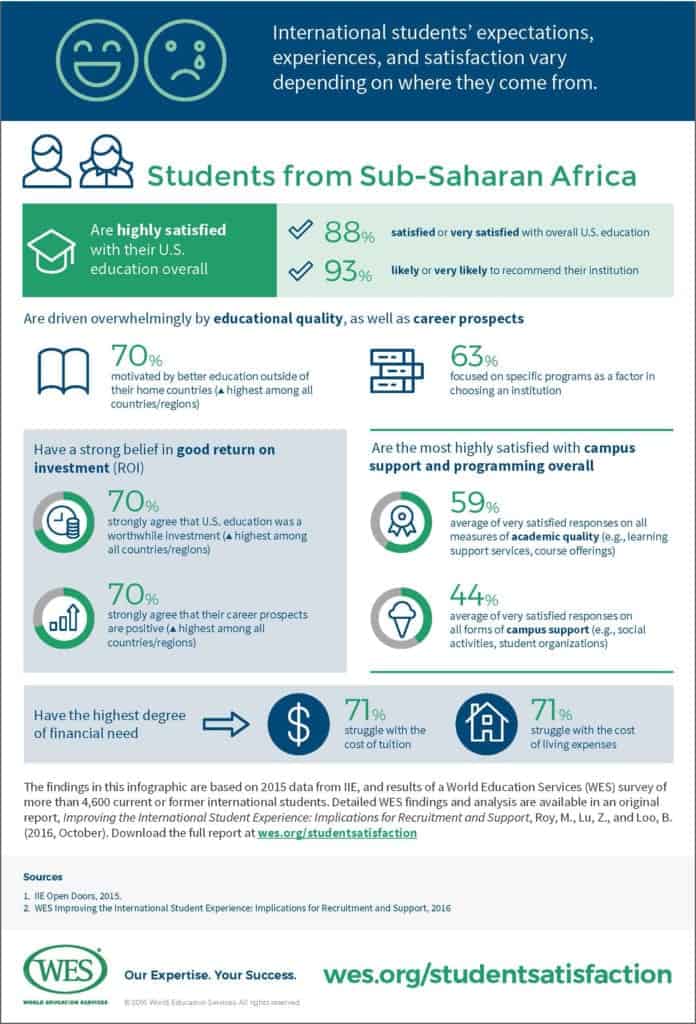Improving the Sub-Saharan African Student Experience
Tuesday | December 13, 2016 | by Kaitlin Ramby

In a recent report by World Education Services (WES), Improving the International Student Experience, international students were surveyed on satisfaction with their education in the U.S. The report assessed international students from varying regions, including: China, India, Europe, Latin America and the Caribbean, the Middle East and North Africa (MENA), and Sub-Saharan Africa.
This post focuses on the educational experience in the U.S. for students from Sub-Saharan Africa. Please view the infographic below, and read recommendations on how you can improve your educational experience in the U.S.
As shown in the information above, African students were highly satisfied with their U.S. education overall, with 93 percent saying they were likely or very likely to recommend their institution.
On the other hand, Sub-Saharan African students also had the highest degree of financial need, with 71 percent citing struggles with the cost of tuition and living expenses in the U.S.
While living and studying in the U.S. can come with high costs, there are solutions to help African students alleviate some of these financial burdens. The following sections discuss a few ways you can meet your financial needs.
Research Financial Aid Options
Paying high tuition costs in the U.S. is a common struggle among most international students, but luckily, there are many ways to avoid paying the full amount of school tuition by:
- Researching to see if there are any scholarships or grants offered by your local government.
- Contacting the school(s) to which you’re applying to see what types of financial aid are offered by the university or program.
- Looking up financial aid options online. Popular websites include fastweb.com and cappex.com. You may also qualify for scholarships specific to African international students.
Managing Living Expenses
The cost of rent, utilities, groceries, and dining out can vary greatly depending on location. If cost of living is a high priority, you can explore options for studying in of the most affordable cities in the U.S. to help you shortlist your school choices.
Once you have been accepted and chosen where you will study, research any work-study programs or paid internships you may be eligible for so you can have an income while studying. It is also important to set a budget for your living costs to keep track of how much you spend every month to avoid overspending.
Are you a current or prospective student from Sub-Saharan Africa and want to share your experiences as an international student in the U.S.? Apply to be part of our Student Ambassador Program!
Were these tips helpful in improving your educational experience in the U.S.? Tell us your thoughts in the comments below.

